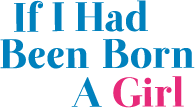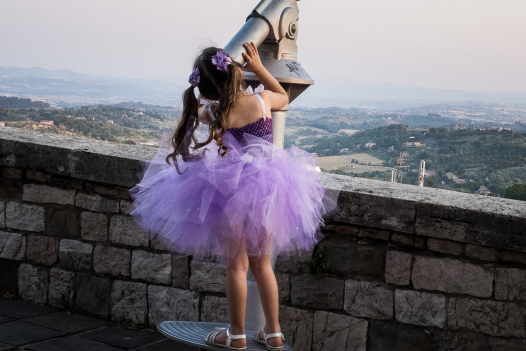When we invite someone to appear as a guest on the If I Had Been Born A Girl podcast, we usually arrange a prep call to explain a bit more about the project’s objectives and answer any questions they may have about appearing on the show. For some guests, this is enough, but others asked us what more they could do to prepare for their interview. We want the conversations we have with our guests to be as authentic and natural as possible, so we don’t work from a script, but we decided to put together a list of example thought-starter questions which they might use as a starting point for their reflections.
To get the most out of this exercise, we recommend the following approach to our guests:
- Read straight through the list from start to finish relatively quickly
- Research suggests that reading questions aloud is even more likely to stimulate your juices
- Do not try to answer any of the questions as you read through
- When you’ve finished reading, put the list away and simply allow your subconscious mind to go to work
We don’t claim the list is in any way definitive, and we could certainly replace all twenty questions with a different twenty many times over. But our guests have told us they found it useful, so we’re sharing it below.
If you’re a man, why not use this list to engage in your own reflections – and share your thoughts on social media using the hashtag #ifihadbeenbornagirl ?
If you’re a woman, why not encourage the men in your life to do the same?
We’ll be looking out for the most interesting posts on social media and adding the best to our curated Statements page.
- Who were the principal female figures in your childhood and what image did they give you of a woman’s place in the world?
- What books did you read, which TV shows did you watch, and which activities did you enjoy as a child that are not typically associated with boys?
- Do you remember being told as a child there were things you could not do or should not enjoy because you were a boy?
- What did you dream of being when you were growing up?
- What was the ratio of male to female students at the educational institution(s) you attended?
- Did the educational institution(s) you attended celebrate alumni (e.g. by displaying portraits on the walls, inviting alumni to speak to pupils, etc.)? If so, were those celebrated predominantly male or female?
- Would you send your daughter to the educational institution(s) you attended?
- Have you ever been the victim of sexual discrimination or harassment in the workplace?
- Has a female colleague ever appropriated an idea of yours and received recognition for it?
- Have you ever negotiated a raise?
- Have you ever suspected a female colleague was being paid more than you for doing the same job?
- Have you ever made a career sacrifice in order to raise your children?
- How many women have you worked for in your life?
- When was the last time you found yourself in a professional setting in which men were significantly outnumbered by women?
- When was the last time you were denied access to something because you were a man?
- When was the last time you were afraid for your physical safety?
- How much of what you have achieved in your career do you believe has been purely the result of your own talent and effort?
- Do you think that a woman entering your field today would have a greater chance of succeeding than she would have done when you began your career?
- Do you think that boys and girls born in 2020 have the same opportunities and the same chances of success in life?
- If you have a daughter – or a niece, or a granddaughter – are you optimistic about her future?
Notes
- The wording used in these questions certainly reflects a number of stereotypes and biases (not only about gender, but about what a ‘normal’ life path looks life) – for example, questions about career tend to be oriented towards traditional work environments.
- Given that guests will naturally be of different ages, different cultural backgrounds, at different stages of their lives and careers, etc. some of the questions may not be directly applicable as they are formulated – we encourage them to interpret them as loosely as possible.
- This list is focused exclusively and consciously on questions of gender in terms of men and women. This should not be taken to mean that we are ignoring the existence of any other types of prejudice, discrimination or privilege.
- Language and terms are British English – so by ‘school’ we typically mean education between ages of 5 and 18, and by ‘university and further education’ anything beyond.


